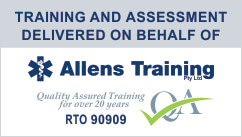Calling an Ambulance
What is a medical emergency?
Always call triple zero (000) for an ambulance in the following circumstances. If you are unsure the operators will talk you through any situation.
- Unconscious person – who doesn’t wake or respond when shaken.
- Heart attack (suspected) – pain in the chest, especially if it is crushing or like indigestion and lasts more than five minutes. The pain may spread to arms and jaw.
- Breathing difficulty – especially if the person is unable to speak more than a few words or has blue lips or mouth.
- Abdominal pain – that is severe and undiagnosed.
- Haemorrhages – major uncontrolled bleeding.
- Bleeding – that does not stop after at least 10 minutes of continuous pressure.
- Back pain (severe) – after a fall or after sudden onset of back pain if over 50 years of age.
- Burns – which are bigger than the size of a hand and/or cause severe pain that is not relieved with simple painkillers, or if the person has difficulty breathing.
- Choking – especially if the person is unable to talk, cry or breathe.
- Convulsions or fitting – if the person is still fitting as you phone triple zero (000) or if they have no history of convulsions (for example epilepsy or brain injury).
- Drowning, near drowning, diving or scuba accident.
- Stroke (possible) – especially if the person experiences numbness, loss of function of hand, arm or leg, slurred speech, facial droop or severe abrupt headache.
- Headache (severe) – not the usual kind, with or without loss of function of arm or leg.
- Motor vehicle accidents – if you think someone has been injured.
- Industrial accidents – where a person is injured or trapped.
- Vaginal bleeding (severe) – with possible or confirmed pregnancy.
- Suicide attempt.
- Pain (severe) after a fall or injury – when the person is unable to sit up, stand or walk.
- Drug overdose or poisoning – whether you know for sure or just suspect an overdose.
- Diabetes – if the person is not fully awake or not behaving normally.
- Allergic reaction – especially with difficulty breathing or loss of consciousness.
- Electrical shock – of any kind.
- Trauma (injury) – which is severe, especially to the head, neck, chest or abdomen – for example if the person was stabbed, shot or impaled, or hit by or ran into an object.
- Meningococcal disease – if symptoms indicate possible infection.
- Hypothermia or heat stress – which is severe.
First aid courses
It is strongly recommended that you take a first aid course, so you can recognise a medical emergency and administer first aid until the ambulance paramedics arrive to take over. Your quick and effective action could mean the difference between life and death for the injured person. For more information on first aid or CPR courses please contact Ian at Simple Instruction by using the contact us section to the right of the page. Or alternatively email or call ; [email protected] or 0411 557 405.
Simple Instruction’s next course will be conducted at the Brookvale Hotel / Pub on Saturday the 20th of November 2010. All are welcome and I look forward to seeing you on the day.
